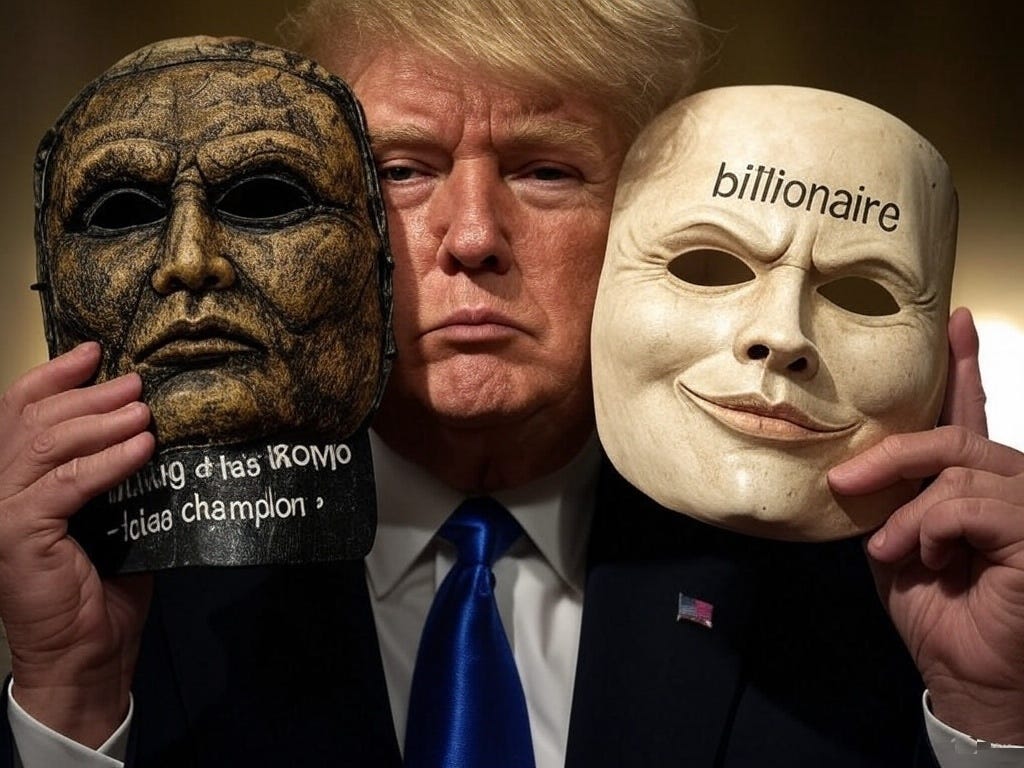Is MAGA actually right wing?
It hasn’t been easy to make sense of the whole MAGA movement. While Trump ran as a Republican and the movement is heavily associated with the right, that framing oversimplifies things. At its core, MAGA is a populist movement—but what does that really mean?
Populism thrives on the idea that a corrupt ruling class—politicians, corporate elites, media figures, and global institutions—has rigged the system against ordinary citizens. It’s less about left vs. right and more about "the people" vs. "the elite."
In many ways, MAGA shares more in common with the left than either side cares to admit.
Tariffs, opposition to to free trade deals like NAFTA, the desire to bring back manufacturing jobs, skepticism of globalization, distrust of institutional power (which includes government agencies, academia, and media alike), railing against elites (eg. the “1%”), isolationism, promises to rebuild infrastructure, pro-blue-collar rhetoric—these all echo progressive, even Bernie Sanders-esque, priorities. The so-called "anti-war" stance, too, has roots in isolationist progressivism.
Yet the aforementioned positions don’t negate MAGA’s distinctly right-wing elements: America First nationalism, anti-immigration sentiments, social conservatism (pro-life, anti-gender identity politics), and the Republican hallmarks of deregulation and corporate tax cuts.
What makes MAGA unique—and messy—is that it pulls from both the left and the right. It borrows a lot of its economic populism from progressivism while embracing cultural conservatism and nationalism. It’s anti-establishment, but not in a traditionally left- or right-wing way either. Instead, it’s an emotional, reactionary force that appeals to those who feel left behind—whether by economic shifts, globalization, or changing cultural norms.
The people who have joined MAGA have contradictory backgrounds too. It includes staunch conservatives, far-right extremists, alongside former leftists who had grown disillusioned with liberal institutions and defected into Trump’s orbit. Many of these factions clash, spectacularly and frequently. And yet, they’ve still somehow managed to unite under a billionaire figurehead who has convinced them that he’s their champion against the terrible elites and globalists. He, will, well…make America great again.
In the end, that paradox might well be MAGA’s defining trait.
☕️ Consider becoming a paid member today. You can also support my work by making a one-off donation via Buy Me a Coffee.




Yesterday well-known journalist/author Fareed Zakaria used the word "Maoist" to describe the US administration, and there's little doubt - hate it or love it - that there's a new radical and even revolutionary wind blowing in Washington: 'As I've written before, President Trump and "tech bro Maoists" have launched a cultural revolution in America.'
There is very little about MAGA that I would say is traditionally conservative. I know too many who were once liberals who also vote MAGA, too. It's a strange conglomeration of political voodoo.